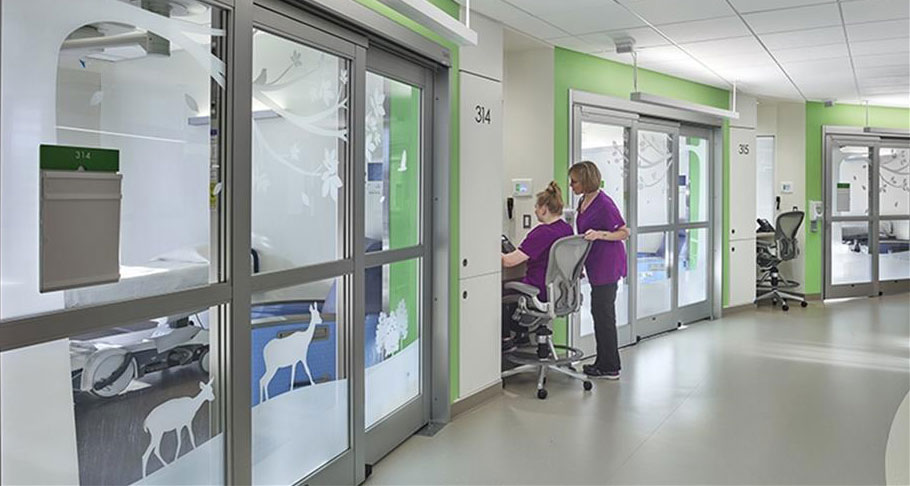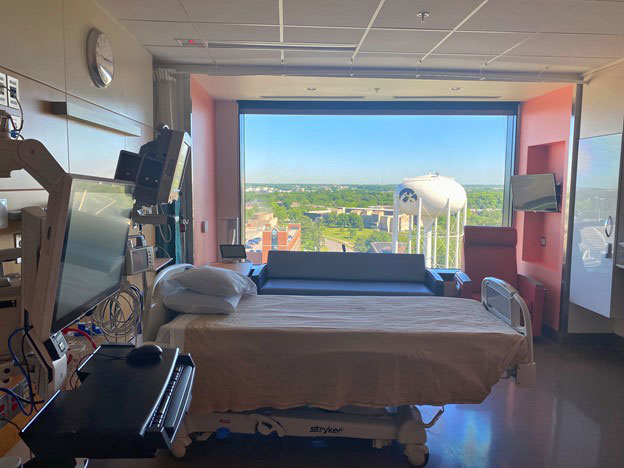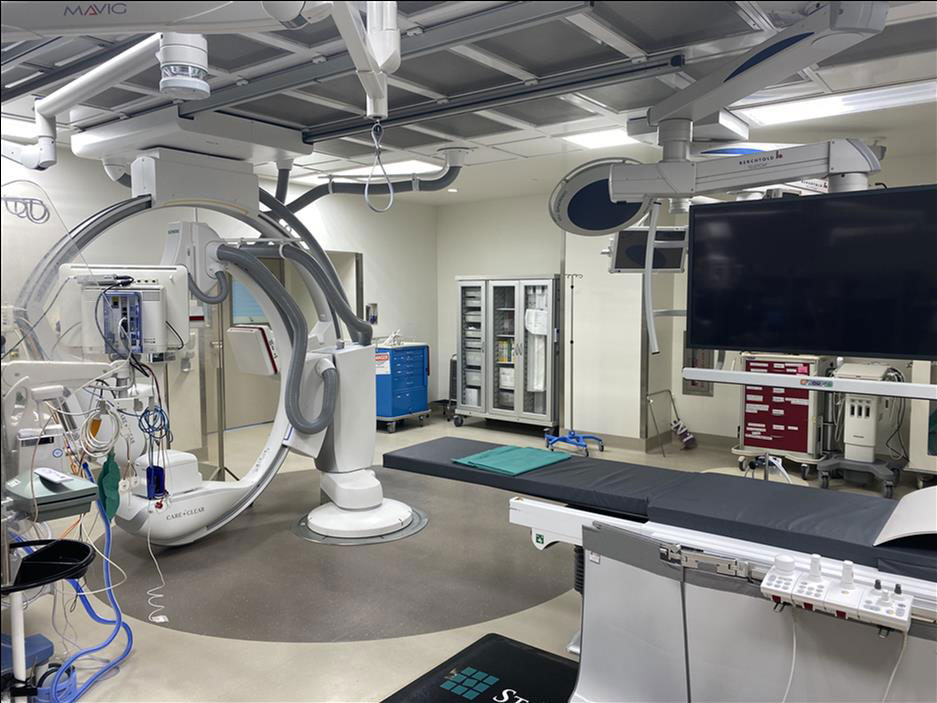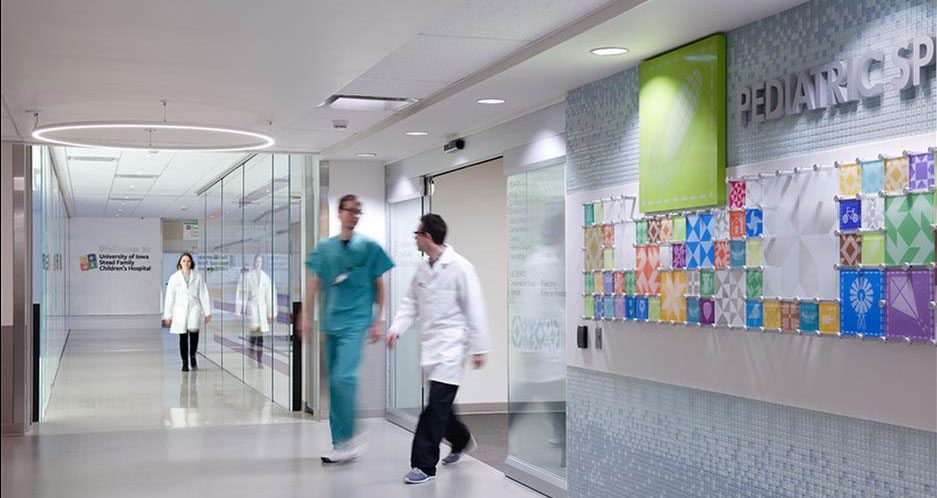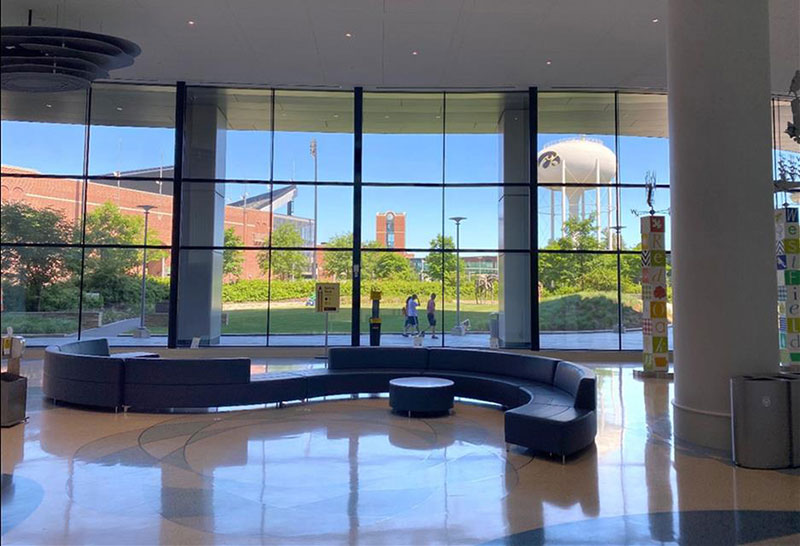About the Program
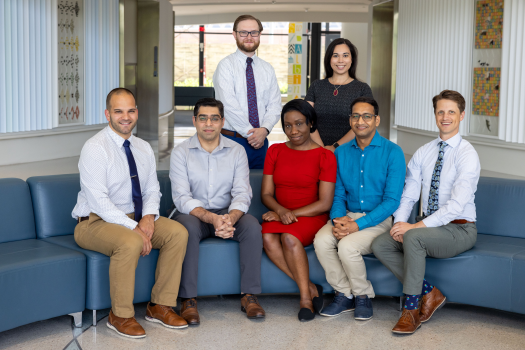
Pediatric Cardiology Fellowship Team: Dr. Peter Barrale, Dr. Moeez Hassan, Dr. Uzoego Chibuzo, Dr. Mayank Sharma, Dr. AJ Heaps, Dr. Gary Beasley and Dr. Stephanie Acosta.
The University of Iowa Pediatric Cardiology Fellowship program is an established, nationally recognized training program with a strong record of developing leaders in the field of pediatric cardiology.
Our faculty members are regionally and nationally recognized leaders in electrophysiology, cardiac catheterization, echocardiography, advanced imaging, general cardiology and research, and are dedicated to training the next generation of pediatric cardiologists. We are a cohesive group that takes pride in maintaining a positive working environment to promote high levels of faculty retention and fellow satisfaction.
As a division, our interests extend beyond medicine: we are also parents, spouses, runners, triathletes, gardeners, students, lovers of the outdoors, and book lovers. We enjoy mentoring trainees in all areas.
Honors/Recognition
University of Iowa Stead Family Children’s Hospital is the only children’s hospital in Iowa nationally ranked for pediatric care by U.S. News and World Report. Read our October 8, 2024 news release.
- No. 21 in neonatology
- No. 25 in pediatric diabetes and endocrinology
- No. 32 in pediatric nephrology
- No. 34 in pediatric urology
- No. 40 in pediatric neurology and neurosurgery
- No. 41 in pediatric cancer
- No. 47 in pediatric cardiology, heart and vascular surgery
- No. 47 in pediatric orthopedics
- Top 50 in pediatric and adolescent behavioral health
The annual Best Children’s Hospitals rankings recognize the top 50 pediatric facilities across the U.S. in 10 pediatric specialties: cancer, cardiology and heart surgery, diabetes and endocrinology, gastroenterology and gastrointestinal surgery, neonatology, nephrology, neurology and neurosurgery, orthopedics, pulmonology and lung surgery, and urology.
University of Iowa Stead Family Children's Hospital and the Stead Family Department of Pediatrics are recognized nationally for a number of achievements.
Pediatric researchers at the University of Iowa have a long history of breakthrough discoveries in both the clinical and laboratory setting. Meet members of our research team:
Schedule
Sample of Pediatrics Cardiology Fellow Schedules
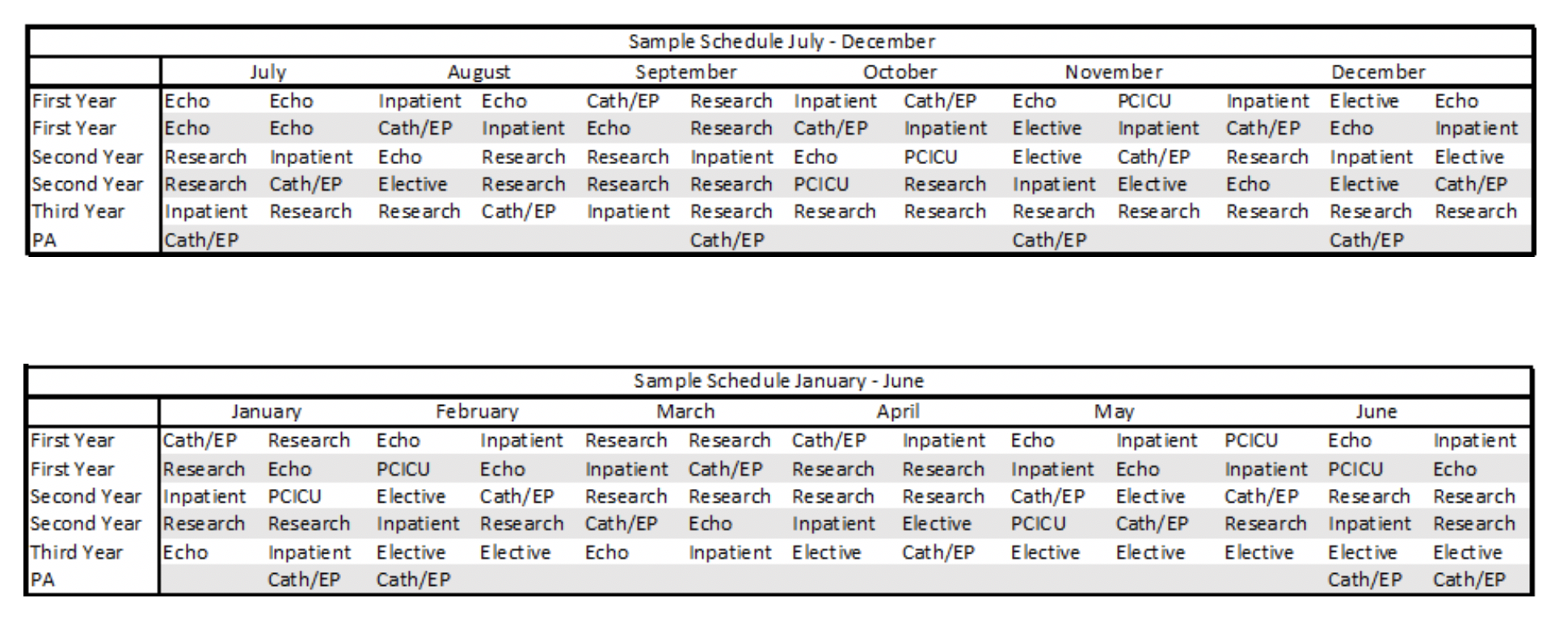
Key goals of the fellow schedule are to provide well-rounded and comprehensive exposure to all aspects of pediatric cardiology. In addition to having ample time on the inpatient cardiology service, fellows have early exposure to our cardiac intensive care unit, and scheduled time in our catheterization and electrophysiology labs during all three years of fellowship. Fellows are scheduled with 12-months of dedicated research time and a substantial amount of elective time for exposure to unique experiences such as advanced cardiac imaging, adult congenital heart disease, cardiac transplant, neonatal hemodynamics, or additional time in our EP and Cath labs. Each fellow additionally has time in our on-site specialty clinic one day a week when not on their inpatient or ICU rotations.
Clinical Rotations
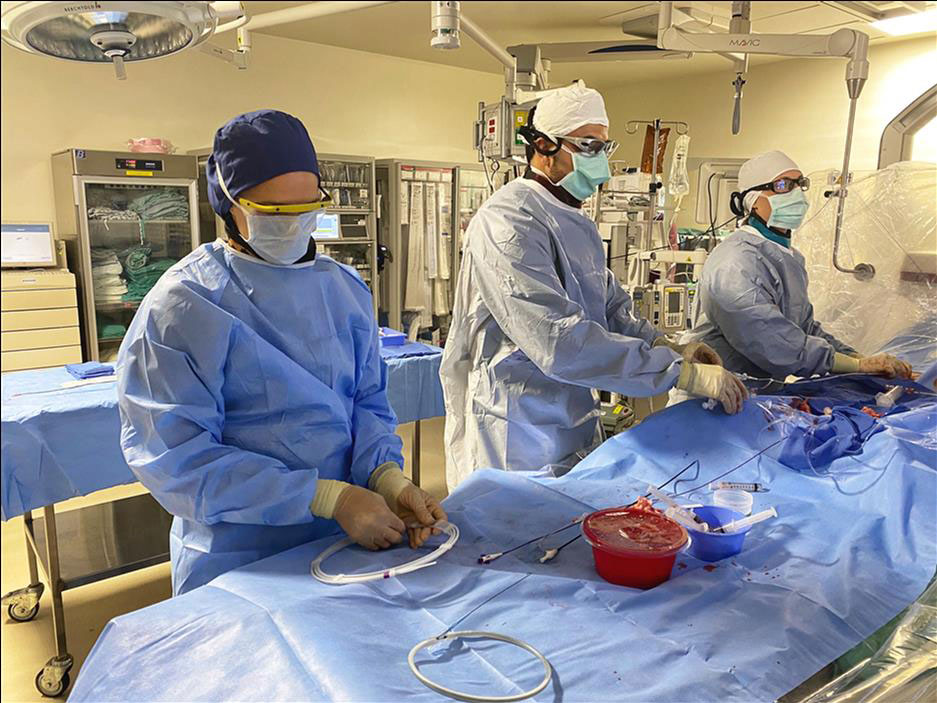
Clinical rotations are arranged in 2 -week blocks with time divided between the inpatient service, the echocardiography lab, and the catheterization lab. Over the 3 year fellowship, fellows will spend approximately 8 months on the inpatient service, 2 months in the cardiac ICU, 5 months in the cath and EP labs, and 6 months in the echocardiography lab. There are 6 additional months of elective time that can be used to pursue clinical or research interests. General duties during each clinical block are listed below.
Clinical Service
- Daily rounds on all patients on the Pediatric Cardiology service
- Combined daily rounds on post-operative patients with the PCICU and surgical teams
- Perform consults throughout University of Iowa Stead Family Children’s Hospital as needed
- Weeknight home call
- Assist with resident and medical student education
- First call for all phone consults or patient questions
- Inpatient team also supported by dedicated ACHD, Heart Failure/Transplant, and Single-Ventricle teams
Catheterization Lab/Electrophysiology Service
- Assist with all cardiac catheterization performed during this rotation
- Assist with all EP procedures performed during this rotation
- Weeknight home call one night per week
Echocardiography
- First year fellows learn to perform and interpret transthoracic echocardiograms. This is accomplished during a protected 1-month echo rotation at the start of first year and then 3 additional months to help fellows master this skill.
- Second and third year fellows learn advanced echocardiogram techniques and learn fetal and transesophageal echocardiograms during their dedicated echo blocks as senior level fellows.
- There is ample opportunities to learn cardiac MRI and cardiac CT
Cardiac Intensive Care Unit
- Four total 2-week blocks distributed in first and second year
- Integrated into the PCICU team
- Increasing responsibility based on experience, interest, and comfort
Electives
- Fellows can elect to spend time in the following areas depending upon interest and career goals. A total of 6 months of elective time is available
- Electrophysiology
- Interventional cardiac catheterization
- Echocardiography (transthoracic, transesophageal, fetal)
- Cardiac MRI and Cardiac CT
- Transplant Cardiology
- Pediatric Cardiovascular Intensive Care Unit (PCICU)
- Cardiothoracic surgery
- Neonatal Hemodynamics
- Research
Curriculum
Our curriculum is designed to create a comprehensive and well-rounded review of all topics within pediatric cardiology with didactic experiences every day of the week.
Pediatric Cardiology Fellow Core Curriculum Series
Twice weekly conferences for all fellows for comprehensive review of core topics in pediatric cardiology. This series includes interactive lectures from subspecialists in advanced imaging, electrophysiology, exercise science, heart failure/transplant, cardiogenetics, intensive care, interventional cardiology, neonatal hemodynamics, pathology, and POTS/syncope. There is also protected time in this series for Moss & Adams sessions and Board Prep Question Review.
Cardiac Catheterization Conference
A weekly conference for all fellows to review planned cases for the upcoming week in addition to cardiac catheterization and angiographic data from interesting cases the previous week.
Surgical Conference
The pediatric cardiology staff, cardiovascular surgery staff and cardiovascular anesthesia staff meet jointly once a week to review upcoming surgical cases. The pediatric cardiology fellows present cases and participate in the discussions.
Echocardiography Conference
This one-hour conference is held weekly with the sonographers joining the fellows every other week. Combined conferences with the sonographers focus on technical aspects of echocardiography and anatomy, while sessions for fellows only delve deeper into clinical aspects of imaging and fellow-specific educational topics.
Surgical Case Review
During this monthly session, one of our cardiac surgeons sits down with the fellows to review video recording of a recent surgery, detailing the surgical process and specific techniques involved in surgical repair and palliation.
Pathology Conference
Regularly scheduled conference for fellows to review cardiac anatomy and pathology specimens with faculty trained in cardiac pathology.
Combined Neonatal Hemodynamics Conference
This monthly conference is held in conjunction with our neonatal ICU and neonatal hemodynamics teams to review challenging neonatal cases and the specific evaluation and management techniques used in neonates.
M & M
This monthly conference is held in conjunction with the surgical and PCICU teams.
Pediatrics Fellow Core Curriculum Series
This weekly lecture series is for all fellows in pediatrics at Stead Family Children’s Hospital and focuses on research and career development with topics covering research basics, REDCap, grant writing, collaborative research, mentorship, and research in progress presentations.
Where We Work
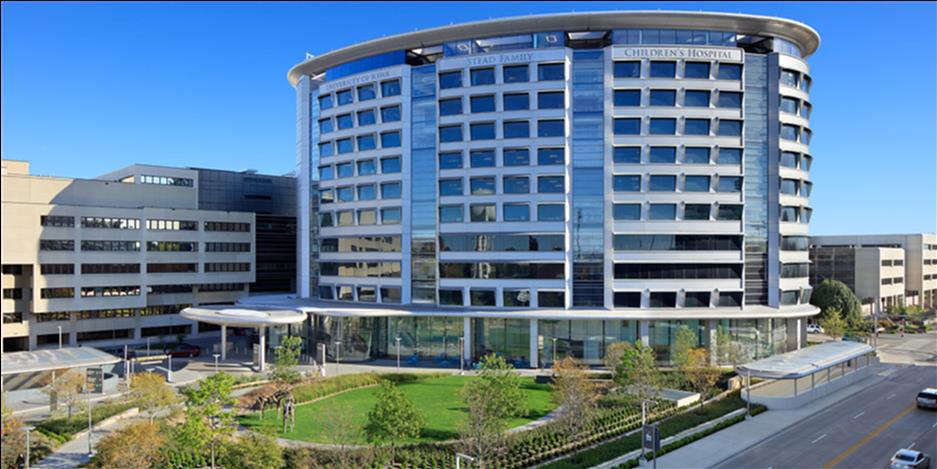
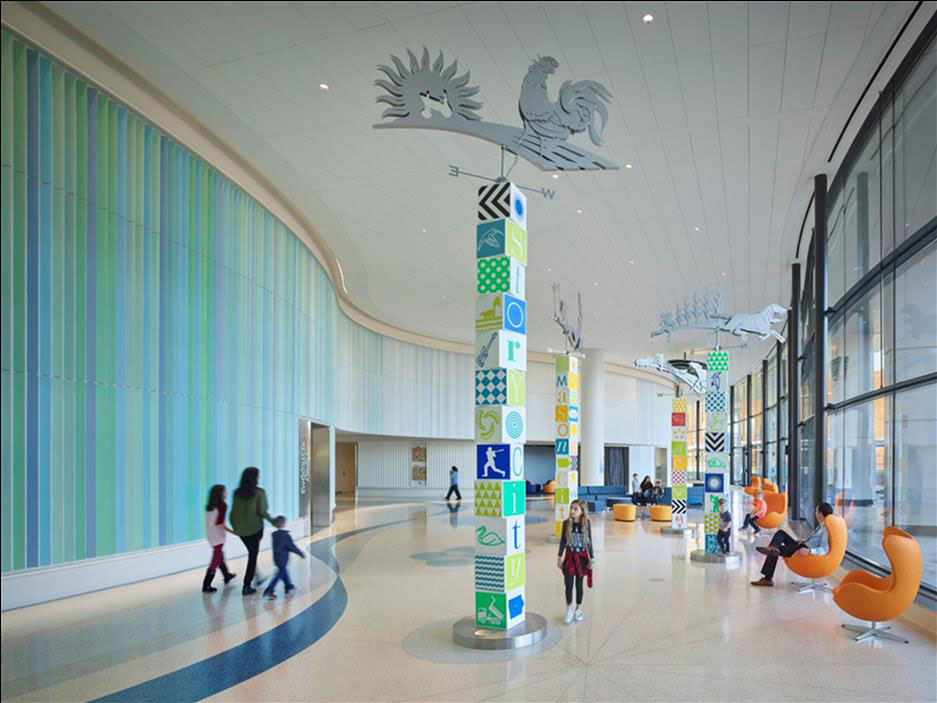
Opened to patients in 2017, Stead Family Children’s Hospital is the only comprehensive children’s hospital in the state of Iowa. This 14-floor, 563,250-square-foot building provides our patients with a family-focused environment for healing with spacious rooms, increased natural light, and new state-of-the-art technology everywhere you look.
Pediatric Cardiac Intensive Care Unit
Our most acutely ill patients are cared for in the third-floor pediatric intensive care unit with 14 rooms specifically dedicated for our cardiovascular intensive care team. These spacious rooms are equipped with live-in space for families and are specially designed to allow surgeons to perform in-room procedures without moving critically ill patients.
Cardiology Floor
Our more stable patients are cared for on the tenth floor which has natural lighting and expansive views of Iowa City and the surrounding area. As a part of one of the most touching traditions in all of sports, our patients also get the attention of more than 70,000 University of Iowa football fans as they turn and wave to the children in the hospital at the end of the first quarter of every home football game. Learn more about The Wave.
Cardiac Interventional and Electrophysiology Labs
Our two newly renovated interventional and electrophysiology labs were opened in 2016 with state-of-the-art Siemens imaging technology, three-dimensional rotational angiography, and the ability to perform radiation-free electrophysiology studies with ablation.
Pediatric Specialty Clinic
Directly adjacent to Stead Family Children’s Hospital is our pediatric specialty clinic, equipped with 5 echocardiography rooms, our accredited echocardiography lab, and a fully functional accredited pediatric exercise lab all directly connected to our cardiology clinic area.
Where We Live
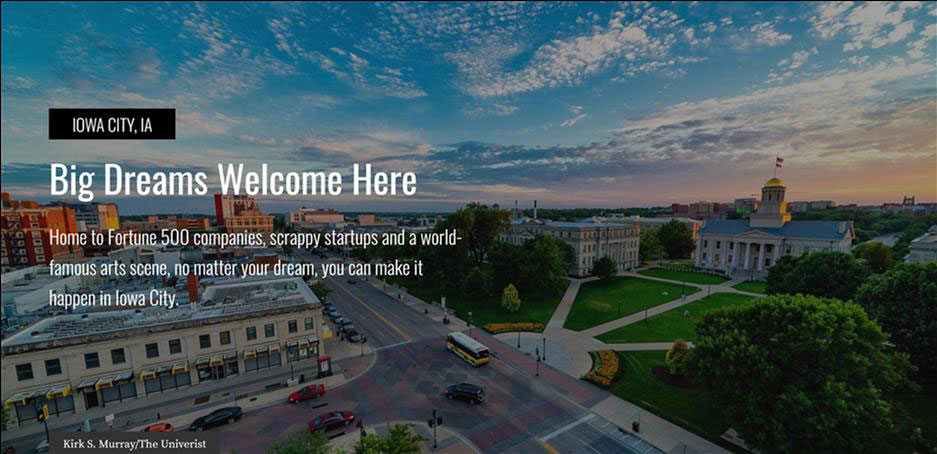
Iowa City, Iowa is not only home to the University of Iowa and Stead Family Children’s Hospital. This city of 76,290 people has been named to Livability’s Top 100 overall best places to live list in addition to Top 10 College Towns, Top 10 Best Cities for Book Lovers, and Top 10 Best Cities for Affordable Health Care.
Get to see more of what Iowa City has to offer!
Advanced Degree Options
Post-Graduate Program in Translational Biomedicine
One of a few such clinical graduate programs in the U.S., the Post-Graduate Program in Translational Biomedicine trains scientists in the principles and techniques of scholarly, patient-oriented research, including epidemiological and translational research and clinical trials. The GPTB has attracted a stellar team of trainees from a multitude of diverse disciplines and backgrounds, and has proven unparalleled in providing a strong, interdisciplinary core curriculum and expansive cutting-edge research opportunities and mentoring.
College of Public Health
Iowa's College of Public Health helps society respond to new and emerging threats, as well as other long-standing public health concerns, including air and water quality, aging, cancer, health care quality and services, obesity, tobacco and substance abuse.
Masters in Clinical Investigation
A two year interdisciplinary program designed for post-doctoral fellows and junior faculty from the Colleges of Medicine, Nursing, Dentistry, and Pharmacy pursuing careers in clinical research. This program is supported by Iowa’s NIH Clinical and Translational Science Award and provides a structured didactic curriculum in research methods in the context of a mentored research experience.
Masters in Medical Education
A two year program coordinated through the Office of Consultation and Research in Medical Education (OCRME). The program requires the completion of 30 semester hours and is designed for post-doctoral fellows and junior faculty from the College of Medicine wishing to pursue careers in medical education. The program includes all facets of medical education, including the practice and principles of educational research.
Certificate in Bioinformatics
A two year interdisciplinary program design for postdoctoral fellows and junior faculty from the Colleges of Medicine, Engineering, and Public Health to combine the latest scientific techniques in human genetics, computer hardware and software to analyze large databases related to human health and disease.
Research and Mentorship
During the first year, each fellow selects members of the faculty to serve on as their personal Scholarship Oversight Committee (SOC). In addition to the program director, the SOC includes a research mentor, a career mentor, and an additional faculty member from outside the division of pediatric cardiology. Fellows meet with their SOC at least twice a year to help guide scholarly work, help with scholarly project completion, and provide overall mentorship to the fellow.
Generally, second-year fellows pursue more intense academic training. Under the guidance of their SOC, independent research is undertaken. In addition to the independent research, the fellow may select courses in developmental biology, embryology, biostatistics, bioassay, experimental design, or any other course that would provide the necessary academic background to perform as an independent investigator. Fellows are encouraged to write abstracts, manuscripts, and grants.
During the third year, a fellow will complete the independent project and present academic endeavors at national meetings, thus providing the necessary visibility for successful job placement upon completion of their training.
Travel to national meetings is provided yearly to each trainee. Fellows have always been encouraged to submit their research findings to Young Investigator competitions of the Academy of Pediatrics, American College of Cardiology or Society for Pediatric Research during their second and third years of training. Previous trainees have successfully competed in these programs.
Current research interests of the division faculty include cardiac catheterization interventions, adult congenital, heart failure, cardiomyopathy, animal research (toxicity, and fatty acid heart defects), fetal neurocardiac development, Fontan palliation, conduction and rhythm disturbances, developmental aspects of cardiac muscle and cardiac contractile proteins, cardiac embryology, echocardiography, and virtual reality with 3D prints for surgical planning.
Faculty
Department of Pediatrics faculty members are in key national leadership positions across the disciplines of academic pediatrics and biomedical research. In 2019, our department ranked twenty seventh in National Institutes of Health (NIH) research funding among pediatric departments located within medical schools. That year our department received $12.8 million in direct costs (direct costs from all extramural research funding totaled $18.7 million). The number of NIH awards and associated direct costs was comparable in fiscal year 2018, i.e., $12.4 million in direct costs from 60 total NIH awards, with direct costs from all extramural research funding totaling $19.6 million.
The Carver College of Medicine is internationally recognized for its excellence and leadership in biomedical research. In 2019, the Carver College of Medicine received $232.2 million in research funding, including $130 million from the NIH, ranking it 41 in the nation among public medical schools. Six University of Iowa Carver College of Medicine programs nationally ranked- with 2 in the top 5.
In its 2021 edition of “Best Graduate Schools,” U.S. News & World Report ranks the University of Iowa Carver College of Medicine in the following categories:
- Physical Therapy: No. 4
- Family Medicine: No. 15
- Primary Care: No. 20
- Internal Medicine: No. 29
- Research: No. 34
Carver College of Medicine faculty have been awarded approximately half of the University's total research funding and more than 80 percent of its National Institutes of Health funding. The University of Iowa is at the forefront among research universities in this country, and its contribution has been nationally recognized by such eminent authorities as the Carnegie Foundation, which classified The University of Iowa as having "very high research activity" among research universities. In the most recent medical school rankings by U.S. News and World Report, The University of Iowa Carver College of Medicine ranked 20th for primary care training and 34th as a research institution.
Quick Facts
Number of fellows accepted each year: 1-2
Total number of fellows in the program: 5
Procedural volume (fiscal year 2019):
- 268 Congenital heart surgeries
- 7 Heart transplants
- 350 Cardiac catheterizations
- 200 Electrophysiologic procedures
- 9,273 Echocardiograms
- 585 Fetal echocardiogram
- 150 Cardiac CTs
- 300 Cardiac MRI’s
Advanced fellowships (fourth year) are available to eligible candidates in cardiac catheterization, electrophysiology, and advanced imaging based on availability of funding.
FAQ
Will I receive excellent clinical training at the University of Iowa?
YES! While we have traditionally been known as a research institution, we are a full service clinical division of Pediatric Cardiology. We have busy catheterization and electrophysiology, transplant, and echocardiography services. We are utilizing cutting edge techniques and technology including percutaneous placement of pulmonary valves, advanced arrhythmia mapping and ablation techniques, 3D echocardiography, Advanced CT and MRI techniques and ventricular assist devices.
Do you have a congenital cardiac surgical team?
YES! Dr. Marco Ricci, Dr. Mohsen Karimi and Dr. Yuki Nakamura are trained in congenital heart surgery and perform all of the pediatric and adult congenital cardiac procedures at the University of Iowa Stead Family Children’s Hospital. This program also runs the ECMO and the Ventricular assist device program. They collaborate with the interventional cardiologists in hybrid procedures and adult cardiac surgeons for collaborative care of the ACHD population.
How will I identify a research mentor and project?
During the first research elective, fellows are encouraged to meet with several clinical and basic science investigators who have ongoing projects that match their own interests. Should a fellow enter the program with a strong background in research or an identified project, a mentor with similar interests will be identified. A strong mentor-fellow relationship is imperative to success in research!
Will I have protected time to perform a research project and meet board eligibility requirements?
Research blocks are protected time! There are no clinical call duties during the week. It is requested that fellows attend their weekly outpatient clinic and educational conferences. All other activities should be dedicated to research.
What is the call schedule?
Weekday “after hours” call is covered by the fellow assigned to clinical service a few nights of the week. Cross coverage relief is typically performed by a co-fellow. Research and echo months are typically call free during the week. Weekend call is split evenly amongst the fellows.
Where is Iowa City?
Iowa City is 220 miles directly west of Chicago on Interstate 80. It's also within a 4-5 hour drive to Milwaukee, Madison, Minneapolis, Omaha, Kansas City and St. Louis. It has the cultural, educational, social and political opportunities of a bigger city with the values and ambiance of a midwestern town. Its clean, safe, nothing is farther than a 15 minute car ride, it has a great city bus system (with bike racks!), wonderful parks, sports, schools and even sailing. Those who have lived here and left, frequently return because what they were looking for was in their own back yard. How ethnically diverse are the patients?
How ethnically diverse are the patients?
Like a lot of university towns, we have a large international community. Growing cultural diversity is another reason Iowa City is an interesting place to live. Diversity is embraced and celebrated with city and university events, festivals, clubs and programs. The University works hard to recruit and retain minorities with its affirmative action policies. About 13% of Iowa Citians are non-white as similar amount of the patients represent the clinic mix.
What’s the weather like in Iowa City?
Iowa City gets to experience the full spectrum of the four seasons and has something to offer almost anyone. Our temperate climate gives us an early Spring and a long Fall with many enjoyable months to be outside. We also get plenty of hot summer days for swimming and even a few weeks every winter with snow. We have a lot of sunny days - on average 199 per year. Our average snowfall is 27", average rainfall is 37", average high temperature in July is 85°F and in January is 30°F.
What is there to do in Iowa City when you're not working?
There are 15 different festivals and art fairs, plus concerts and race events. There are many music venues, sports events and neighborhood street fairs and garden walks. We also have a really big mall and several smaller ones, 41 parks, 9 golf courses, 6 public tennis courts, 6 public pools, some lakes and a reservoir with trails, camping & boating. There are bike trails, some famous bookstores, a ton of galleries and excellent museums. There are half a dozen or more performing arts venues including Hancher Auditorium. There's always something going on. Find more information from the Iowa City/Coralville Convention and Visitors Bureau.
What's Iowa City like for kids and families?
Iowa city has 50 public parks, miniature golf, a great public library, a toy library, ice skating, bowling, organized sports, fun centers, swimming pools and 3 beaches, 9 museums including a children's museum, dance companies and public recreation centers that feature many activities for kids and families at little or no cost. We also have 20 movie screens and 50-licensed daycare providers. The Iowa City schools are perennially ranked among the top schools in the nation. Iowa City is unique in the facilities and services available for individuals with disabilities. Many families who have a family member with a disability are reluctant to leave Iowa City because they cannot duplicate those services in another location.
Are there any job opportunities for my spouse/significant other?
Yes, in March 2020, Iowa City had an average of 2.7% unemployment. Also check out The University of Iowa's Dual Career Network.
